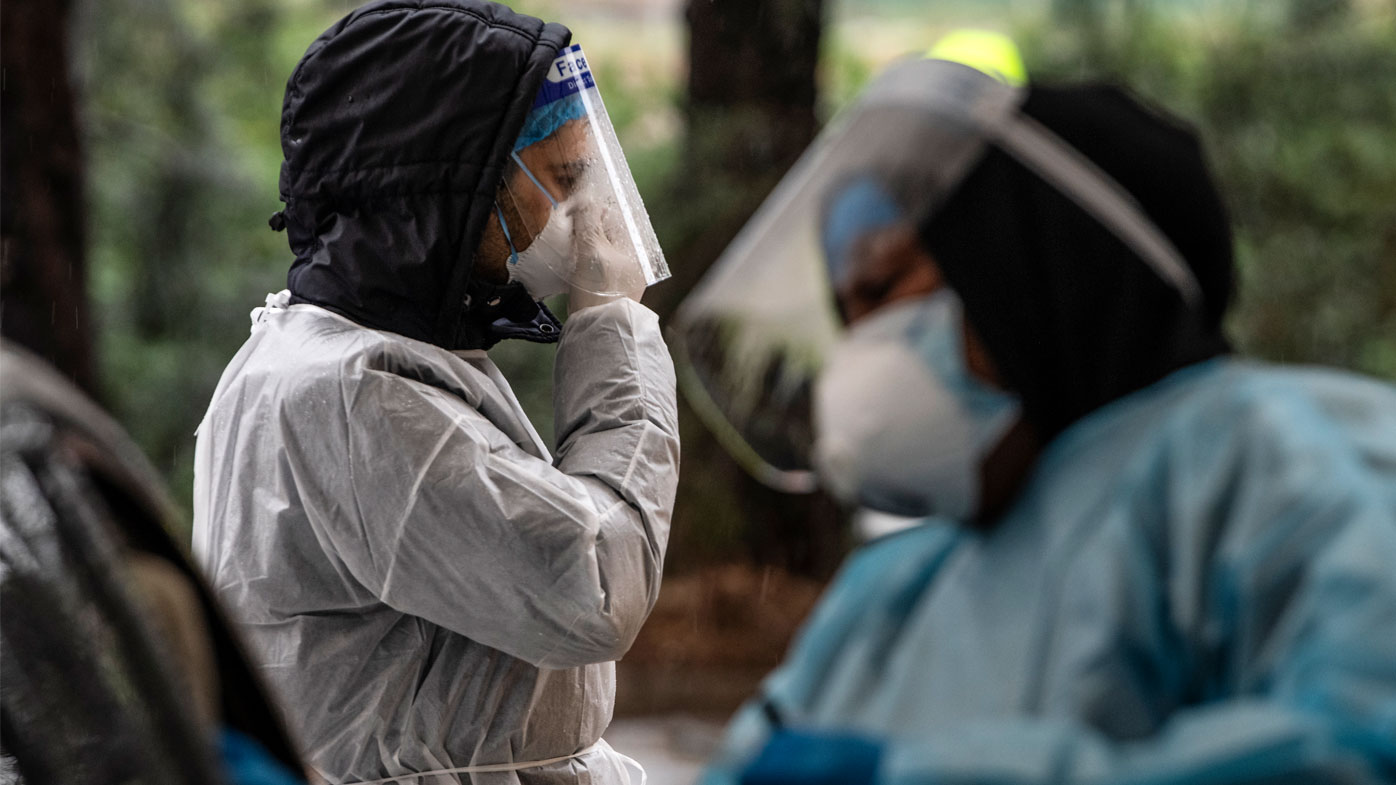Just as Australia seemed to be coasting towards a long-awaited Christmas break with family and friends, Omicron emerged.
Now, with cases rising, particularly in New South Wales, many are questioning what a safe Christmas day should and could look like, particularly if grandparents or a vulnerable family member is visiting.
Despite a surge in Omicron cases, and daily cases in NSW tipped to reach 25,000 by the end of January, ICU admissions are steady, hovering between just 20-30 people in the state.
READ MORE: Hacker steals Sydney man's life savings after simjacking

It will fall on individuals to make the right decision, an infectious disease social scientist we spoke to said, even if that might mean missing out on precious Christmas plans altogether.
UNSW Associate Professor Holly Seale said Christmas did need to be one giant worry-fest, but she warned that one of the biggest concerns will be how those with a little sniffle in the days leading up to Christmas day choose to act.
Here are some of the most pressing questions answered:
What about the family Christmas dinner?
Professor Seale says people need to take existing public health advice into their Christmas day celebrations, doing things like fist bumping, washing hands regularly and eating outdoors if they can.
"I think we need to be realistic," she said.
"There's going to be people who feel they've had two very strange, hard, long years with COVID and this Christmas to them was almost about marking a point of change."
READ MORE: Woman killed by falling tree in Sydney 'micro-burst' storm identified
What about pre-Christmas dinners with friends?
Professor Seale said to exercise common sense and caution.
There needed to be "balance" in people's decision-making.
She said people who are meeting in Sydney and then going to travel on into the regions for Christmas day and holidays should be "mindful" about their actions and the precautions they take.
"I think people are already being sensible about picnicking in parks and going to bars which offer outdoor drinking opportunities."
Should I wear a mask indoors?
This is an individual's choice, she said.
Certainly masks should always be worn in accordance with government recommendations, Professor Seale said.
READ MORE: WA locks nation out for Christmas
I have a sniffle, should I still go to Christmas dinner, and is it okay to ask someone not to come if they have symptoms?
"Go and get a test," Professor Seale said, explaining that how those people with symptoms act could be the biggest single factor in whether there are any super spreader events at Christmas.
"This is where we're really going to struggle, to make sure people are compliant (with testing and isolation), because of that fear of them missing out on Christmas."
Professor Seale said people needed to be ready to make the hard call, whether that meant declining dinner invites or for those hosting a family Christmas to consider delaying their plans.
"You don't want to be responsible for putting someone at risk."
READ MORE: Hundreds in Christmas quarantine after infectious teen goes clubbing
What if someone elderly is coming, is that safe?
This could also be a "hard" decision for people, Professor Seale said.
Taking care of the elderly or vulnerable with underlying health risks should be a priority, she said.
But it was important to balance that against the mental health toll that isolation has forced on many for almost two years.
"Keep on with those fist bumps, make sure you keep up with hygiene in your household and eat outside if you can."
Should dinner be outdoors?
Yes. This is an excellent way to help lower the risk of transmission, Professor Seale said.
Should everyone get tested before they turn up for Christmas lunch?
Not only is the accuracy of rapid antigen tests variable, Professor Seale said, but any pre-Christmas spike in demand could put additional pressure on the supply of tests that other people might actually need more.
"There is certainly a window where rapid antigen tests work more effectively," Professor Seale said.
"If you're outside that window, there's a greater chance of a false positive."
